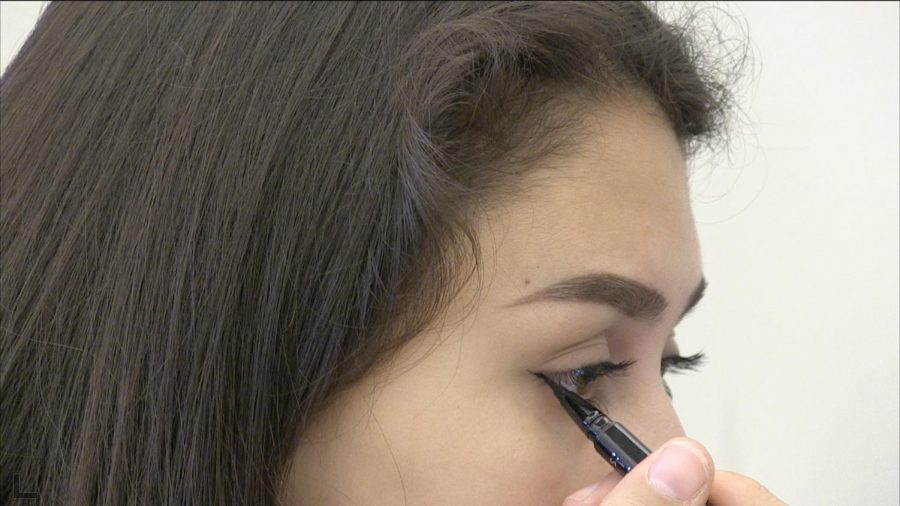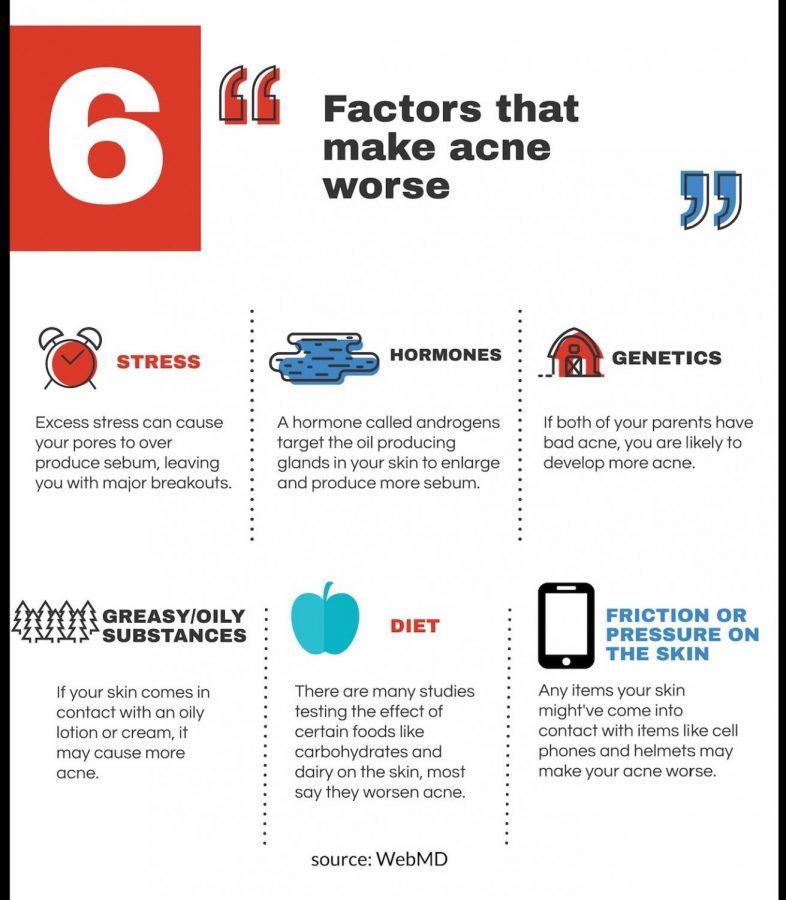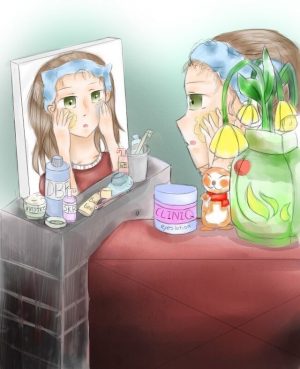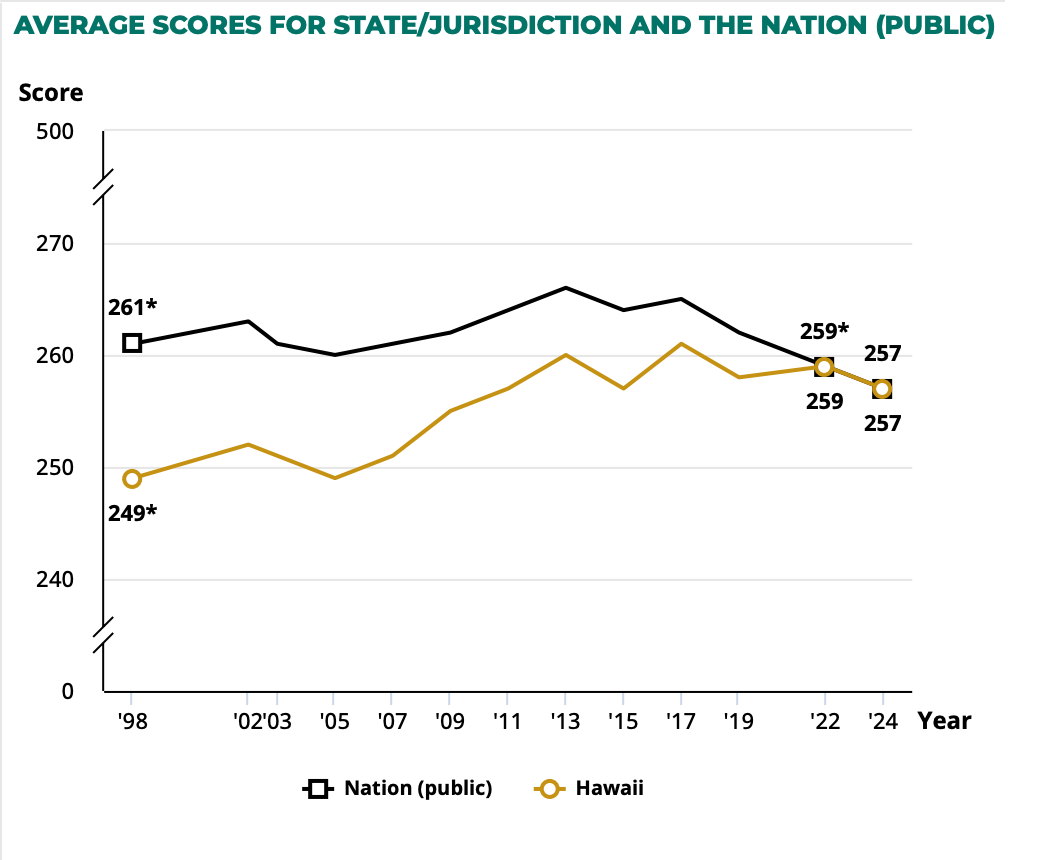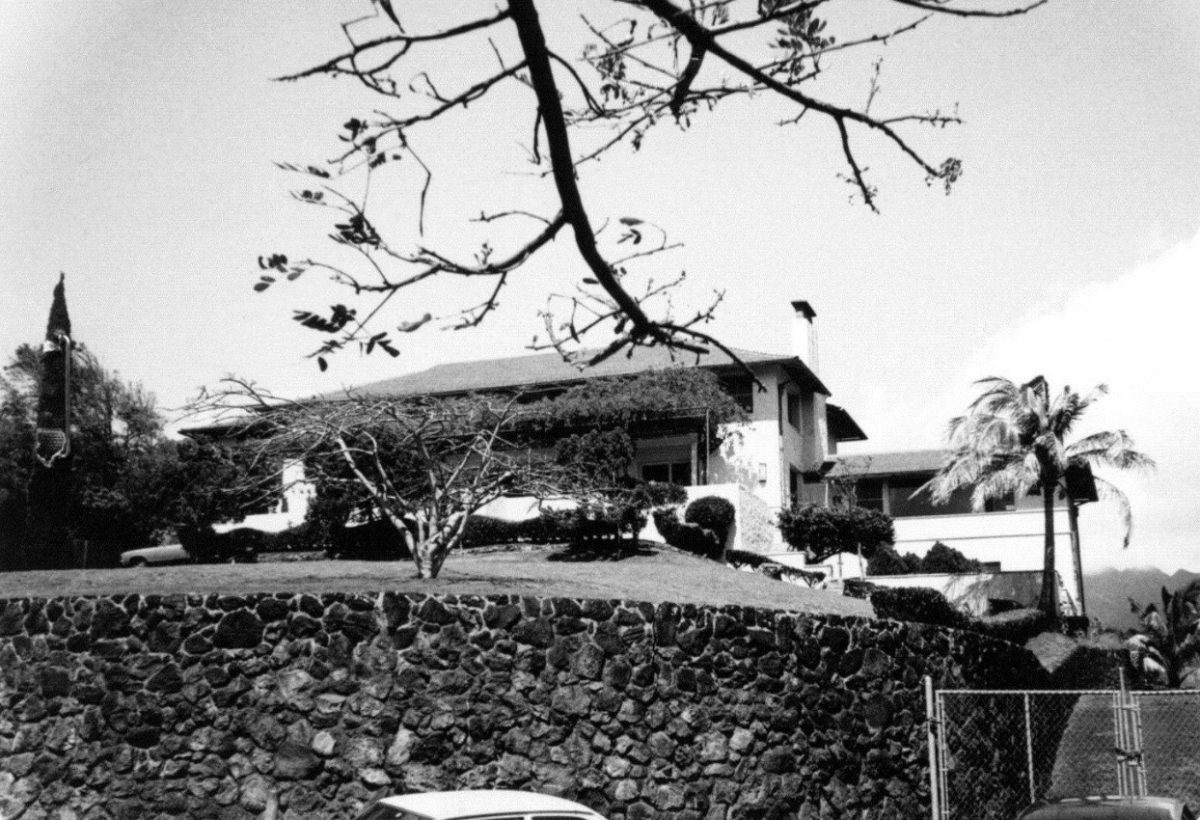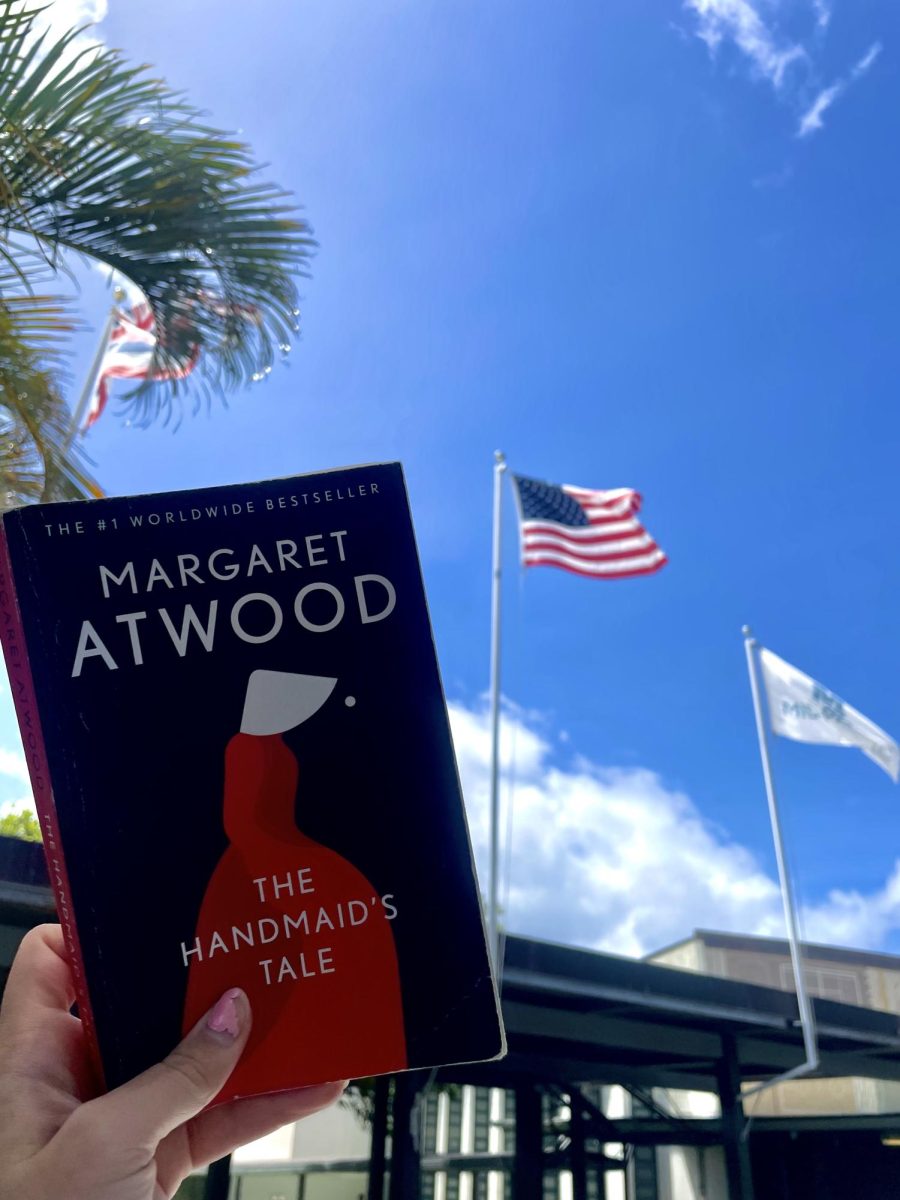Don’t sweat your skincare problems: experts offer help
Mid-Pacific’s skincare enthusiasts are here to help you get great skin.
Junior Sarae Miguel demonstrates the perfect application of winged eyeliner. Miguel, a campus expert on makeup tips, frequently posts colorful makeup posts to her social media accounts.
March 6, 2020
Does desperately masking irritated skin, blackheads and bad breakouts with a full face of makeup sound familiar to you?
Skincare problems are typical in teenage years, but don’t sweat it — you don’t want to clog your pores. Mid-Pacific’s skincare enthusiasts and makeup artists are here to help with useful tips and tricks.
Many students might turn to complex skincare regimes in an attempt to clear their skin, but without being properly informed, teens could end up with more problems than they started with.
The four major skin types consist of: normal skin, which is healthy and balanced; dry skin, which possesses low levels of elasticity; oily skin, which is prone to acne; and combination skin, which is characterized by different skin types from the T-zone to cheeks, according to WebMD.
Na Pueo staff writers interviewed three on-campus experts and a certified dermatologist who graduated from Mid-Pacific to find out the best skincare routines and makeup tips for teens. Here’s what they had to say.
Mid-Pacific senior Chloe Solidum, YouTube creator and makeup expert:

Senior Chloe Solidum explaining the importance of skincare.
Solidum has been publishing videos to Youtube for about a year now. She started becoming passionate about makeup more than five years ago.
“Definitely get a good face wash that you can afford or something that is good for your skin type,” said Solidum.
Solidum has her own YouTube channel where she uploads makeup tutorials and has become an expert on skincare and makeup, but she said she has been perfecting her art for much longer.
“I started doing makeup when I was 11 […] I just wanted to try it out,” she said.
In their teenage years, students often start using makeup, but it’s important to have clean skin before packing on the foundation, Solidum said.
“You don’t want to be putting makeup on over bad acne,” she said.
After gaining all of her experience, the main makeup tip Solidum offers to beginners is to gradually add steps to your makeup routine.
“Definitely start out light and work your way up as you learn more,” she said. One of the steps you can work up to is applying lashes.
Sarae Miguel, Mid-Pacific junior, makeup artist:
Miguel frequently posts colorful makeup looks to her personal Instagram account to track her progress as a makeup artist.
She recommends students who are just starting with makeup not to overdo it, because it will make some features stand out too much.
“I wasn’t aware of how things would shape your face, and how to shape your face correctly or make things look subtle or purposely the way I wanted,” said Miguel.
It’s important to understand that you shouldn’t feel pressured to wear makeup every day if you don’t want to and vice versa. It is your own personal decision, she said.
“Sometimes I can leave the house without makeup,” said Miguel.
Miguel said you learn to do what you like over time with repetition, and it takes time to perfect every part of any makeup application.
“I started to perfect what I like to do, which would be mascara, doing my eyebrows, and sometimes eyeliner,” she said.
David Robinson, Mid-Pacific sophomore, skincare enthusiast:
David Robinson is a sophomore who takes great care of his skin every day and changes his skincare products throughout the year as the seasons’ change.
He said he always keeps in mind how a product might make his skin too oily or too dry. He searches for products that help keep his skin balanced.
“I definitely change my products as the seasons’ change, especially in the wintertime,” said Robinson. He recommends his peers stay hydrated, get lots of rest, and overall take great care of your body.
“Get lots of rest; a good eye cream is very helpful with late-night homework, especially when going to bed late,” said Robinson.
Robinson has combination skin, meaning that some days he has oily skin, some days he has dry skin, and other days he has normal skin.
“When I have oily skin, I use an exfoliating cleanser which is very helpful,” he said.
If you notice more serious skin issues, including dark spots or scarring, Robinson recommends you talk to a skin care professional.
“See a dermatologist; the internet is not always the best resource,” said Robinson.
Erin Fuller, dermatologist and Mid-Pacific class of 2001 Alumna:
Fuller is a board-certified dermatologist and she shared her skincare knowledge with Na Pueo.
According to the American Academy of Dermatology, you should start and end your day by washing your face with warm water and a mild face wash.
“Everyone should wash their face twice a day; just a really gentle cleanser is ideal,” said Fuller.
She said teenagers have started using harsh physical exfoliants and rotating brushes which can cause lots of damage to the skin.
“When you use these harsh soaps and exfoliants, it really disrupts the normal skin barrier which is there to protect your skin,” she said.
Fuller recommended throwing away abrasive soaps and exfoliants and start using gentle cleansers from drugstore brands to start repairing the skin barrier as soon as possible.
“When you’re cleansing your face, just use your fingertips with a little bit of cleanser and just kind of gently scrub the skin,” said Fuller.
The most common skin issue in teenagers is acne, but it’s still difficult for teens to get the information they need.
“The most important thing is to seek help when the traditional over the counter treatments are not doing the trick,” said Fuller.
If you’re worried about your skin not responding to acne medications, Fuller said that there are lots of different medications that can work for you.
“There are a lot of prescription medications … that can really help to clear up your skin,” said Fuller.
It is also important to give your skin an adequate amount of time to respond to medications, whether it’s from the drugstore or a prescription from a dermatologist.
“Most treatments take about 6 weeks to take effect. Most times it gets worse before it gets better because a lot of blackheads and whiteheads are coming up to the surface to clear,” Fuller said. “So stick with it and keep going and be consistent.”

